Hi Everyone
A few days after my visit to Bridge and my experience of Bonfire Night (see my last post), I arrive in York to research the dark ages history of the place for my novel. The morning after my arrival, I walk into the city to grab some food before my explorations. I pop into a bakery and stand in line to buy some Chelsea Buns, for which I had developed a taste while in Wales. Suddenly, all noise stops as the shop radio announces the two minutes of silence for Armistice/Remembrance Day. I stand with my head bowed and think about my nephews, one currently serving in the Navy and two recently discharged from the Army, and of my father, who was in the RAAF during World War II. For the rest of the day, my thoughts keep returning to them and what I know of their experiences, and in the evening I draft a poem. Below are the opening lines of the final version, which was published a few days ago in Eureka Street (and can be read here):
In a bakery in York, I stand silent
With other customers for two minutes,
Think of nephews who have served
And seen action, some still serving
On land and on water, some bearing
The costs of their service in bad knees,
Hard hearing, scars in hidden places,
And think also of you, my father…
Two days later, Sunday, 13 November 2016, I am walking through the city on my way to the train station for my trip back to Wales. I notice people are gathering on the bridge over the Ouse. Babes in prams. People wearing everything from their Sunday best to work clobber. Tourists with cameras. A security presence.
 |
| View of the River Ouse from the bridge |
I ask an army press officer near me what’s happening. It turns out there is a march through the city every year to celebrate Armistice Day/Remembrance Day and then a laying down of wreaths at the war memorial in a park near the banks of the Ouse. I am ahead of schedule for catching my train, so I decide to stay and watch. Below are photographs of the occasion. (I tried to get one of each of the different services/units, but am not sure of their names. Any suggestions would be welcome.)
 |
| The head of the march |
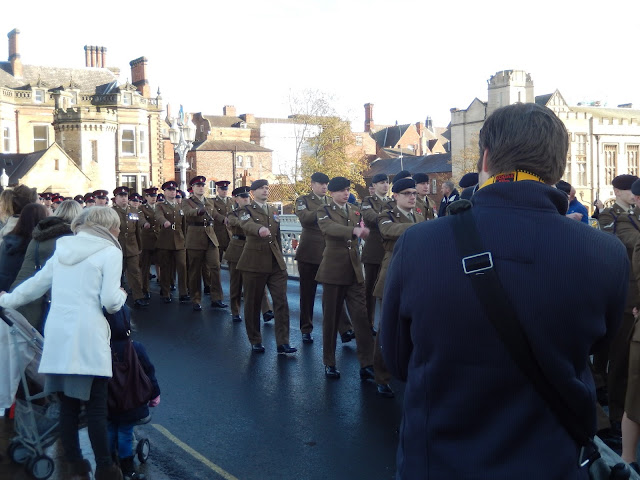 |
| Army? |
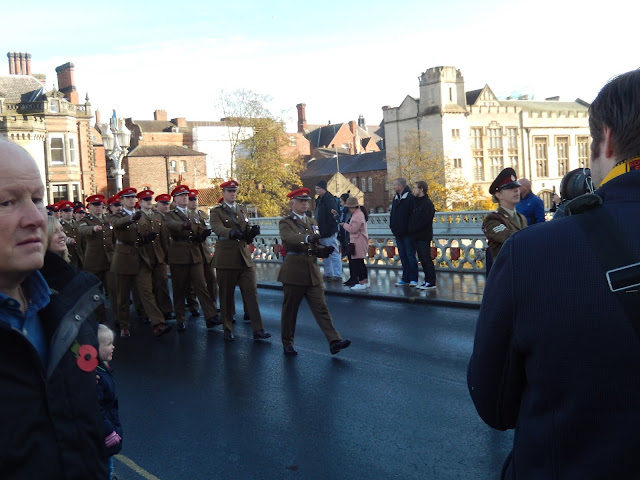 |
| Paras? |
 |
| RAF |
 |
| Army? |
 |
| Royal Navy |
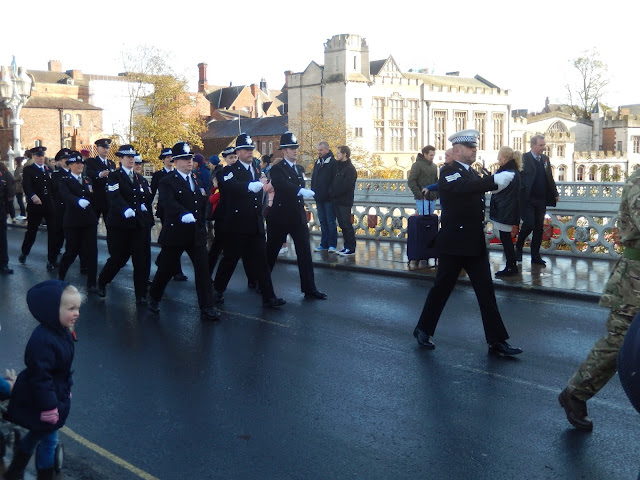 |
| Police |
 |
| Marines? |
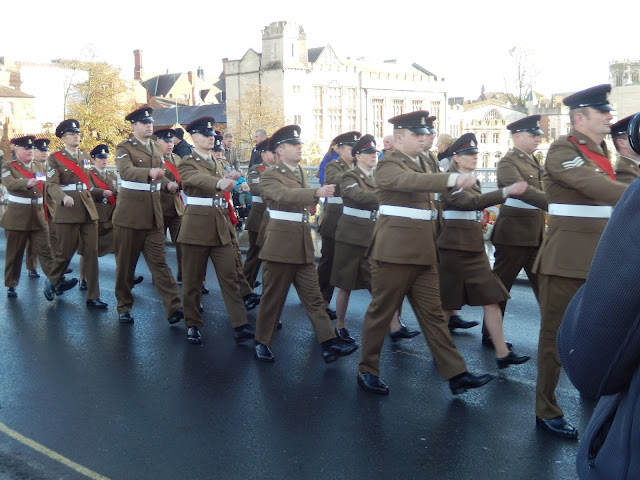 |
| Military Police? |
 |
| Other veterans |
 |
| The wreath laying at the memorial |
 |
| The lowering of military colours |
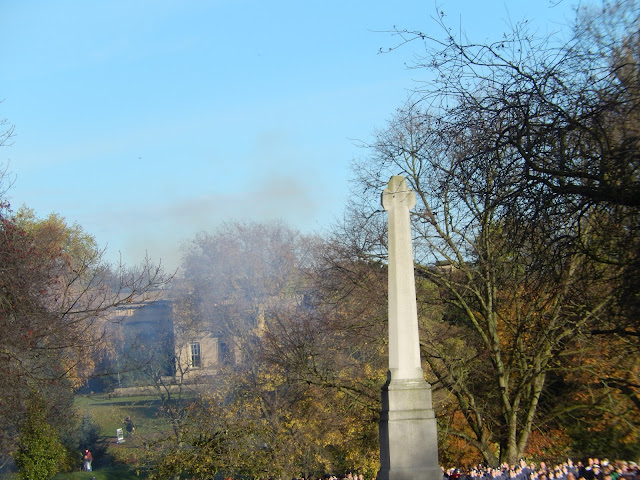 |
| Smoke from the gun salute near the end of the ceremony |
Much of the crowd stayed around after the ceremony, to share in the memories evoked and to give thanks, but I had to get to the railway station. I was glad to have seen the march and the wreath-laying and so pay my respects to those, like my nephews and those of my father’s generation, who had given something of themselves in the service of their country.
As always, I welcome your comments, especially if you’d like to share some of your own Remembrance Day memories.
Best Wishes
Earl

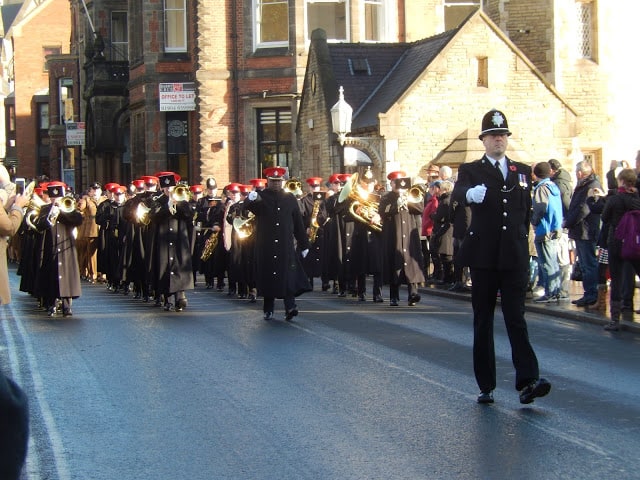
How timely, especially with your Eureka poems coming out as well. Interesting how Remembrance Day seems even more poignant in another country.
Thaks, Nadine. Yes, it is interesting. I wonder if it has something to do with being outside one's comfort zone and thus being more sensitive, more open, to one's own feelings. Cheers, Earl
I think when away from ‘home’ all experience is on a high flame. Such processions and commemorations – the marching in sync, the hats-off-respect, the old men in suits with medals all in a line, will move even the most cynical amongst us.
Those photos lacking captions reminded me of The New Yorker competition where they print a cartoon without a caption and then get people to send in suggestions. The best 2 get printed.
Thanks Earl.
HI Elly, You're right about the effect of such a solemn procession on even those cynics among us. As for the captions, I am hoping one of my more military-minded relatives lets me know which service each marching group represents (I'm looking at you, Bill…). Thanks for your comments. Cheers, Earl